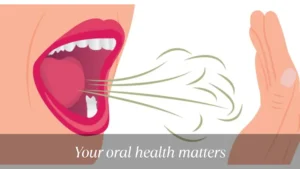Introduction: What Causes Tooth Decay?
Have you ever wondered why those pesky cavities keep ambushing your dental health when you least expect it? Tooth decay is more than just a minor inconvenience – it's a complex oral health challenge that affects millions of Americans every single year. This isn't just about the occasional toothache or filling; it's about understanding the intricate dance of biology, diet, and oral hygiene that determines the health of your teeth.
Imagine your mouth as a delicate ecosystem, where microscopic battles are constantly waged between protective mechanisms and destructive forces. Every bite you take, every drink you sip, and every moment you forget to brush potentially tips the balance toward tooth decay. But here's the good news: knowledge is power, and by the end of this comprehensive guide, you'll be armed with everything you need to know to protect your pearly whites.
Understanding Tooth Decay: More Than Just a Hole in Your Tooth
The Science Behind Dental Caries
Tooth decay, scientifically known as dental caries, is a progressive disease that systematically breaks down tooth structure. It's not a sudden event but a complex process involving multiple factors:
Anatomy of a Cavity:
- Starts with microscopic damage to tooth enamel
- Progresses through different layers of the tooth
- Can lead to significant structural damage if left untreated
- Potentially causes pain, infection, and tooth loss
The Tooth's Natural Defense Mechanism
Your teeth aren't passive victims in this process. They have remarkable self-healing capabilities through a process called remineralization. When minerals like calcium and phosphate are present in your saliva, they can help repair early stages of tooth damage.
The Comprehensive Breakdown of Tooth Decay Causes
1. Sugar: The Arch-Nemesis of Dental Health
Sugar isn't just a dietary villain – it's a dental destruction agent. When you consume sugary foods and drinks, you're essentially setting up a feast for harmful bacteria in your mouth.
How Sugar Triggers Decay:
- Bacteria consume sugar and produce acid as a byproduct
- Acid immediately starts eroding tooth enamel
- Repeated exposure creates cumulative damage
- Hidden sugars in processed foods are often the most dangerous
Sugar Consumption Breakdown:
| Sugar Source | Decay Risk | Recommended Limit |
|---|---|---|
| Soft Drinks | High | Less than 1 can/day |
| Candy | Very High | Occasional treat |
| Fruit Juices | Moderate | 4-6 oz daily |
| Processed Snacks | High | Minimize intake |
2. Acid: The Enamel Eroder
While sugar gets most of the blame, acidic foods and drinks are equally destructive to tooth enamel. These substances can directly compromise your tooth's protective layer.
Top Acid-Rich Foods and Drinks:
- Citrus fruits and juices
- Carbonated beverages
- Sports and energy drinks
- Vinegar-based dressings
- Wine and certain alcoholic beverages
- Tomato-based products
Acid Erosion Process:
- Acid contacts tooth surface
- Minerals are stripped from enamel
- Protective layer becomes weakened
- Increases vulnerability to bacterial invasion
3. Bacterial Warfare: Understanding Oral Microbiome
Your mouth hosts a complex ecosystem of bacteria – some helpful, some harmful. Dental caries develop when harmful bacteria gain the upper hand.
Bacterial Decay Lifecycle:
- Bacteria accumulate and form dental plaque
- Plaque hardens into tartar if not removed
- Harmful bacteria multiply and produce acid
- Continuous acid production damages tooth structure
4. Saliva: Your Mouth's Unsung Hero
Often overlooked, saliva plays a crucial role in maintaining oral health. It's not just about moisture – it's a sophisticated defense mechanism.
Saliva's Protective Functions:
- Neutralizes harmful acids
- Provides minerals for tooth remineralization
- Washes away food particles
- Contains antibacterial proteins
- Helps maintain optimal oral pH balance
5. Genetic and Personal Risk Factors
Your genetic makeup and personal health conditions can significantly influence cavity susceptibility.
High-Risk Groups:
- Individuals with diabetes
- People with hormonal imbalances
- Those taking certain medications
- Individuals with dry mouth conditions
- Genetic predispositions to weak enamel
Advanced Prevention Strategies
Comprehensive Oral Hygiene Routine
Morning Routine:
- Brush for 2 minutes with fluoride toothpaste
- Use soft-bristled or electric toothbrush
- Focus on proper brushing technique
- Clean tongue to reduce bacterial buildup
Evening Routine:
- Thorough brushing and flossing
- Use interdental cleaners
- Rinse with antibacterial mouthwash
- Avoid eating after final cleaning
Dietary Modifications for Dental Health
Recommended Foods:
- Calcium-rich dairy products
- Crunchy vegetables
- Nuts and seeds
- Green and black teas
- Sugar-free chewing gum
Foods to Limit:
- Sticky candies
- Carbonated drinks
- Processed snacks
- Excessive fruit juices
Professional Dental Care
Regular Check-up Recommendations:
- Dental examination every 6 months
- Professional cleaning
- X-rays to detect early decay
- Fluoride treatments
- Dental sealants for added protection
Emerging Technologies in Cavity Detection
Cutting-Edge Diagnostic Tools
- Laser fluorescence devices
- Digital radiography
- Intraoral cameras
- Advanced 3D imaging techniques
Product Recommendations
- Electric Toothbrush: Philips Sonicare or Oral-B series
- Water Flosser: Waterpik Advanced or WP-660 models
- Probiotic Supplement: ProDentim for oral microbiome support
Conclusion: Empowerment Through Knowledge
Tooth decay isn't an inevitable fate – it's a preventable condition. By understanding the complex mechanisms behind cavity formation and implementing strategic prevention methods, you can maintain optimal dental health.
Your Smile, Your Investment: Every decision you make today impacts your oral health tomorrow. Commit to a comprehensive dental care strategy and watch your smile transform.
Disclaimer: This article provides general information and is not a substitute for professional medical advice. Always consult healthcare professionals for personalized guidance.










